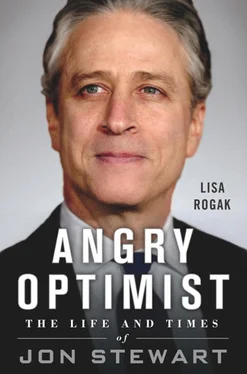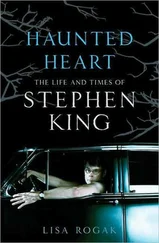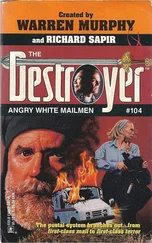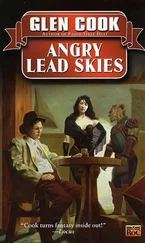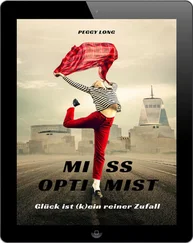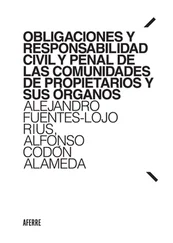One of his first postgraduation jobs consisted of testing mosquitoes for encephalitis in the New Jersey Pine Barrens, for which he received the princely sum of $119 a week for the summer. “I had a state car, I’d drive down to the Pine Barrens and think I had the greatest gig in the world,” he said. “We’d go out at night and set up these traps and then come back in the morning to [collect them]. Every flying creature in the Pine Barrens would be there.”
The traps consisted of giant paper coffee cups wrapped in panty hose which were then attached to car batteries that powered both a light and a fan for each cup. “All the bugs would fly towards it, and they’d get sucked in through the fan and get trapped,” Stewart said.
“We’d take them back to the lab and knock them out with chloroform and then sort them out by sex. This would take a while and they would start to wake up.” By the end of the summer, he said he looked like he had contracted bubonic plague, though only the female mosquitoes bit. “I had all sorts of chiggers and bites. It was insane.”
Once that job ended, he continued on to a local science research lab, and he took a job where his tenure was mercifully short, for obvious reasons: “The scientists would pour radioactive chemicals into beakers and tell me to clean them out,” he said.
Next, he took another job working for the state of New Jersey as a puppeteer putting on shows for disabled children with an organization called Kids on the Block. Some of the puppets were disabled, others weren’t, and Stewart performed skits designed to help teach kids without disabilities how to relate to kids with physical and emotional issues. “I was a cerebral palsy puppet, a blind puppet, a deaf puppet,… and a puppet who couldn’t commit to a relationship,” he said.
“While the show was a noble effort, it was completely unsatisfying for me…. I needed to create something I felt part of.”
His desire to make people laugh—on a larger scale than just his teammates or coworkers—was rapidly becoming part of his larger dream. “[The puppet show] was a truly good thing to do, yet I thought, fuck this. I need stand-up,” he admitted.
In between nobler jobs such as the puppeteering, he also worked part-time as a bartender at restaurants and bars around Trenton. The irony wasn’t lost on him. “I was literally helping and hurting people, all on the same day,” he said.
But he still had to make a living, so he ditched the puppet gig and ramped up his bartending gigs, driving an “off-brown” Gremlin back and forth to work while listening to his beloved Bruce Springsteen on the car stereo. The Bottom Half was the name of one bar, tucked into a windowless basement below a liquor store in Trenton; City Gardens, an alternative rock club, was another. Jon gladly worked shifts there since popular bands like the Ramones and Butthole Surfers played often, and in fact Joey Ramone became a regular customer.
He enjoyed the work, the music, and clientele, and even invented a drink called A Whack in the Head, combining a Long Island Iced Tea with an Alabama Slammer. “Drink two, and you’re not getting up the stairs,” he joked.
But despite his work and social life—he also played on a local softball team every spring—Stewart still felt like he was on the outside looking in, wondering why everyone else seemed so much more happier than he felt.
“When I tended bar, I was always happier behind the bar, not out rocking to the band,” he said.
In a way, he equated bartending with his glory days as a college soccer player.
But the stress of cutting off drunks and watching other people have the time of their lives night after night took a toll. He decided he would be happier back at a more conventional job, and so hung up his bartending apron and once again took a job working for New Jersey state government, landing a position in the disaster planning preparedness department.
Because he happened to be proficient at a new database program known as Lotus 1-2-3, he was assigned to make lists and keep figures on state resources.
“I made charts… in case we were attacked by Pennsylvania,” he said.
As usual, he was good at his job and his supervisors and managers loved him, but inside he just felt dead. He wanted to start doing something he felt was worthwhile along with developing his own identity—hopefully one that involved making people laugh, the only thing that made him feel normal, like he belonged—and so he weighed his options.
“I was a little lost from the age of eighteen to twenty-four,” he said. “I was… working for the state and playing on a… softball team… thinking, this is it for the next seventy years? I realized that if I didn’t watch it, I’d be forty and this would be me, but instead of playing softball, I’d be the guy organizing the team.
“Plus, they were about to re-up me for another forty years [at my job], and… I’m twenty-three…. I can always be one of the bitter guys in my town. It’s not like they won’t save a seat for me.
“Besides, I’m way too young for a dental plan,” he joked.
So he made his decision. Though he had shared with a few people his dream of making audiences laugh for a living, to his friends and family it still came as a shock when he broke the news. He had kept it mostly secret because he didn’t want anyone to discourage him or talk him into a life that included a safe bet: a job with the state, insurance, pension, the works.
“I’d never told my friends or family… so to them it was like a bombshell.”
But to him, it was the only thing that made sense. When watching comedy, he thought, “That’s how my brain works,” he said.
“[I became a comic] because I was uncomfortable in other settings…. As bad as I was when I started, it still felt better than anything else I’d ever done.”
“When he finally decided to become a comedian, it was a little bit of a shock,” said his mother, Marian Leibowitz. “But he was going to New York, he wasn’t going to China. I decided I wasn’t going to be the person to discourage him.”
Stewart packed a bag, found a place to sublet in Manhattan, and left for New York City. “I threw everything away and moved to New York on a six-week lease,” he remembered.
As usual, on the seventy-mile drive, Jon turned to his role model for a little boost in confidence. Years later, he’d tell Bruce Springsteen on The Daily Show how important his music was to helping him get on that very soundstage. “You go through the tunnel, take a chance, and you can work to get away from your circumstance. And by working to get away from your circumstance you can make something better of yourself, but there’s no guarantee. But you know what? The joy of it is chasing that dream, and that was my inspiration for leaving New Jersey and going to New York. So I just wanted to thank you personally from the bottom of my heart for giving me something to put into the dashboard as I drove a U-Haul van through the Holland Tunnel.”
IN 1986, JON STEWART risked everything to move to New York City to pursue his dream of becoming a stand-up comic.
He had a small problem. After he settled into city life, it took him almost a year before he worked up the courage to go onstage in front of an audience for the first time. Of course, every budding stand-up comic needs time to prep, to develop a routine, to study every word and nuance of routines by the greats, but Stewart had another issue to face. He had never actually performed comedy onstage. The closest he’d come was his prank in the musical during his senior year. He was at a clear disadvantage compared to the seasoned comedians who went from one open mike to another in the course of an evening.
Читать дальше
